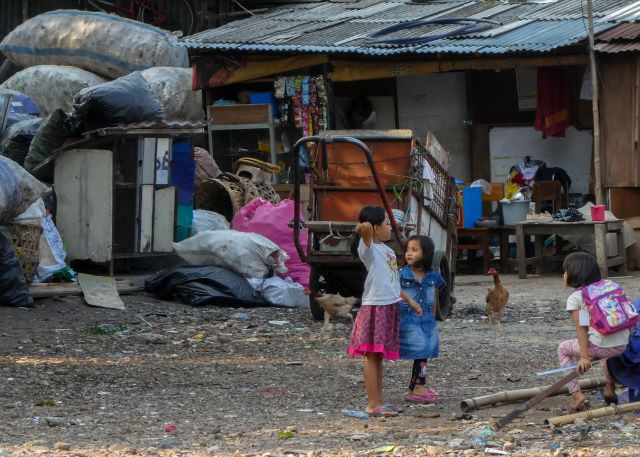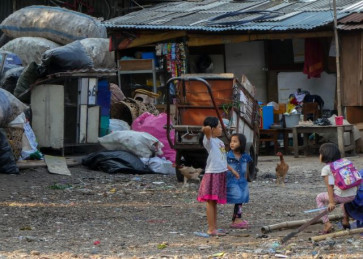Popular Reads
Top Results
Can't find what you're looking for?
View all search resultsPopular Reads
Top Results
Can't find what you're looking for?
View all search resultsAddressing inequality and urban segregation in Jakarta
In 2019, a whopping 14.4 percent of Jakarta households were in slum areas, while the development of exclusive residential areas such as gated communities and vertical housing was on the rise, indicating increasing urban economic segregation.
Change text size
Gift Premium Articles
to Anyone
I
n the wake of neoliberalism, as the old saying goes, the rich get richer, and the poor get poorer. Inequality is a longstanding issue in many countries, including Indonesia.
Despite declining poverty around the world, global economic (wealth and income) inequality is rising; as half of the population holds only 8.5 percent of the global income, the top 10 percent snap up 52 percent of all income (Stanley, 2022). In terms of wealth, 50 percent of the world’s population accounted for less than 1 percent of total global wealth in 2021 (Credit Suisse, 2022).
In Jakarta, economic inequality persists, reflected in its Gini ratio of 0.42, higher than the national Gini ratio of 0.38 (BPS, 2023). Economic inequality can determine the quality of future generations and their socioeconomic mobility, where poor people will produce poor future generations, and the rich will continue to perceive their status (Kearney and Levine, 2016).
Moreover, inequality also exacerbates segregation. According to Gruber (2019), the level of similarity between people's socioeconomic backgrounds affects their interactions. Therefore, by reducing the gap between each part of the wealth pyramid, it promotes the economy through increased socioeconomic mobility and social cohesion in the community.
Inequality within the capital is caused by many factors, mostly economic problems, where the rich live separately from the poor. Unfortunately, the issue of urban economic inequality within the region receives relatively little attention from scholars.
Chetty and Hendren (2018) found that neighborhoods affect the quality of intergenerational mobility in the future. In 2019, a whopping 14.4 percent of Jakarta households were in slum areas, while the development of exclusive residential areas such as gated communities and vertical housing was on the rise, indicating increasing urban economic segregation.
From an economic perspective, urban segregation can exacerbate poverty, limit access to employment, public services and education, as well as hinder development. In addition, it can also cause other social consequences such as increased conflicts, crimes and politicized polarization.



















